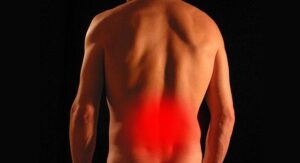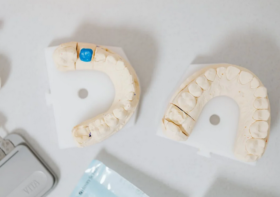Common Signs of Nutrient Deficiencies and How to Treat the Issues

Do you often feel tired and run down? Are you struggling with weight gain or loss, despite eating what you consider a healthy diet? You may be suffering from a nutrient deficiency. Nutrient deficiencies are becoming increasingly common due to our modern diets and lifestyles. However, they can be easily treated with the right supplements for health and changes to your diet. In this blog post, we will discuss the most common signs of nutrient deficiency and how to correct them.
Bone Pain
 One of the first signs of vitamin D deficiency is bone pain. This is because vitamin D is essential for calcium absorption and bone health. If you are suffering from bone pain, be sure to get your vitamin D levels checked by a doctor. You can also increase your vitamin D intake by spending more time in the sun or supplementing. Aside from that, you should also eat calcium-rich foods, such as dairy products, leafy greens, and nuts.
One of the first signs of vitamin D deficiency is bone pain. This is because vitamin D is essential for calcium absorption and bone health. If you are suffering from bone pain, be sure to get your vitamin D levels checked by a doctor. You can also increase your vitamin D intake by spending more time in the sun or supplementing. Aside from that, you should also eat calcium-rich foods, such as dairy products, leafy greens, and nuts.
Brittle Hair and Nails
Another common sign of nutrient deficiency is brittle hair and nails. This is often due to a lack of biotin, a B vitamin that helps support healthy hair and nails. If you are lacking in biotin, you may also experience hair loss. Hair and nails come from the same cells in your body, so they are both affected when you are deficient in nutrients. The best way to treat a biotin deficiency is to take a supplement or eat biotin-rich foods, such as eggs, nuts, and legumes.
Mouth Ulcers
 Mouth ulcers are another sign that you may be deficient in nutrients. They are usually caused by a lack of vitamin B12, iron, or folate. Iron is essential for carrying oxygen in your blood, while folate helps your body produce new cells. If deficient in either of these nutrients, you may experience mouth ulcers, fatigue, shortness of breath, and pale skin. The best way to treat a deficiency is to take supplements or eat foods rich in nutrients and vitamin B12, such as leafy greens, raspberries, and fortified cereals.
Mouth ulcers are another sign that you may be deficient in nutrients. They are usually caused by a lack of vitamin B12, iron, or folate. Iron is essential for carrying oxygen in your blood, while folate helps your body produce new cells. If deficient in either of these nutrients, you may experience mouth ulcers, fatigue, shortness of breath, and pale skin. The best way to treat a deficiency is to take supplements or eat foods rich in nutrients and vitamin B12, such as leafy greens, raspberries, and fortified cereals.
Red or White Bumps on Skin
If you have ever noticed red or white bumps on your skin, you may be deficient in zinc. Zinc is an essential mineral for skin health and the immune system. You may also experience dry skin, hair loss, and diarrhea if you are deficient in zinc. Zinc can be found in foods such as oysters, beef, and dark chocolate. You can also take a zinc supplement to correct a deficiency. If you are experiencing any of these signs, you may be deficient in nutrients. However, they can all be easily treated with the right supplements for health and changes to your diet. Be sure to speak with a doctor if you are concerned about your nutrient levels. They can help you find the best way to get the necessary nutrients.



